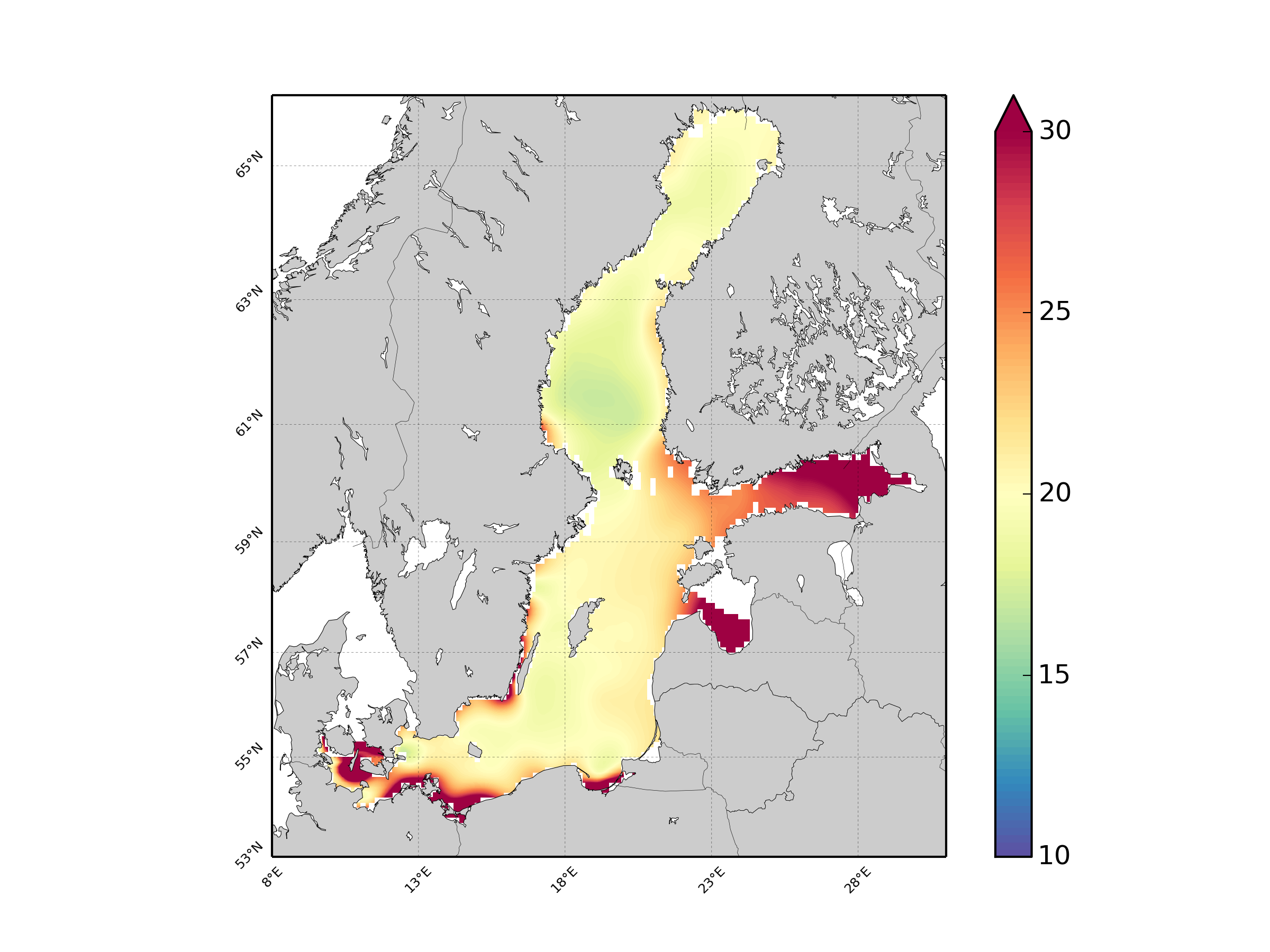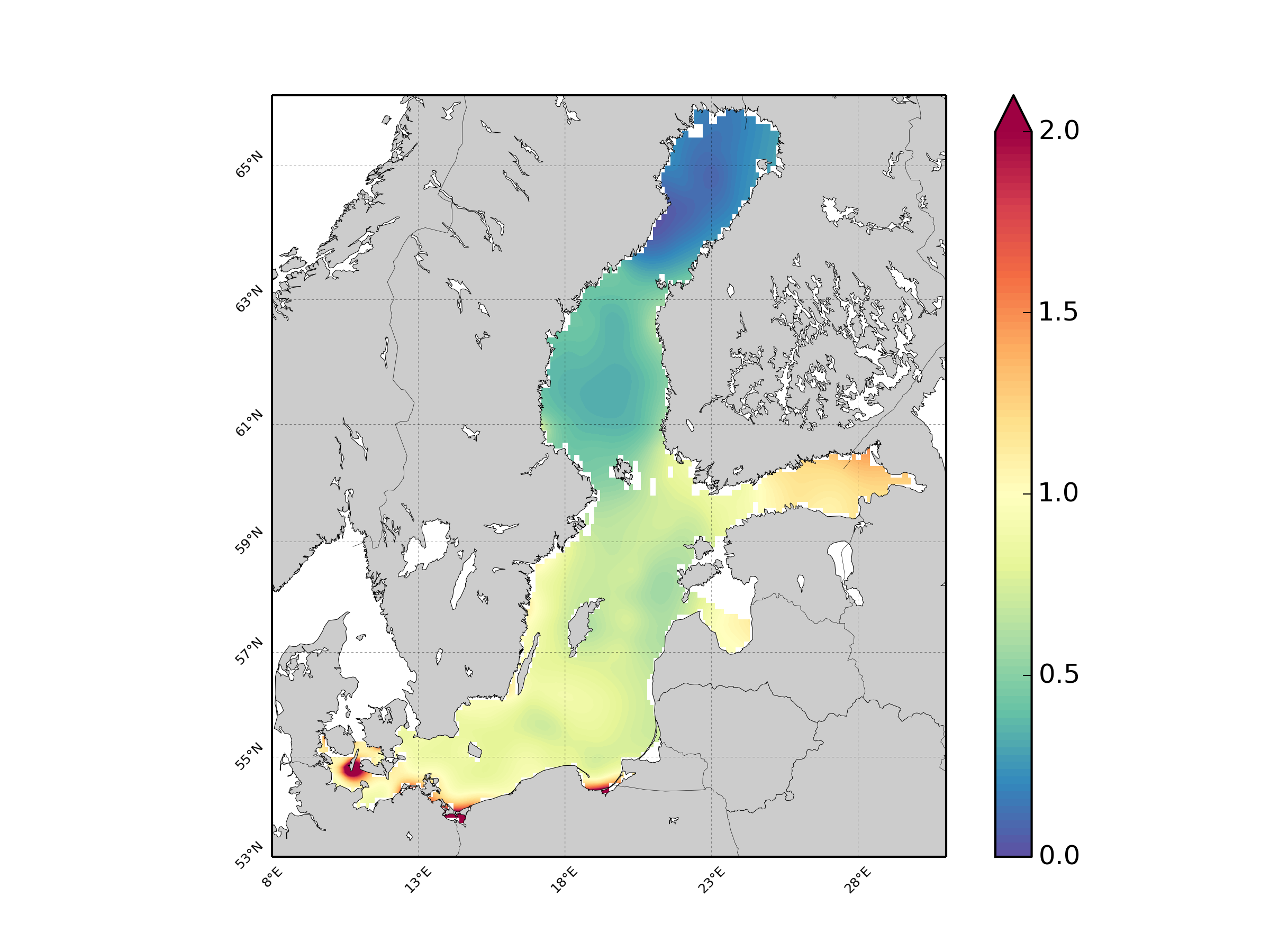Swedish Meteorological and Hydrological Institute
Type of resources
Available actions
Topics
Keywords
Contact for the resource
Provided by
Years
Formats
Representation types
Resolution
-
Data collected within various monitoring programmes and surveys. Chlorophyll-a from water collected with bottle at discrete depths.
-
Data collected within various monitoring programmes and surveys. Chlorophyll-a from water collected with hose over integrated depth intervall.
-
SHARK ("Svenskt HavsARKiv" / "Swedish Ocean Archive") is the national marine biological monitoring database of Sweden, holding monitoring data on phytoplankton, zooplankton, bacterioplankton, phytobenthos, zoobenthos, seals, primary production, sedimentation and chlorophyll measurements.
-
The Aranda cruise investigated the Baltic Sea, and the Kattegat and Skagerrak on July 2017, 10th – 17th. 18 stations were investigated for JERICO-NEXT. The main objectives of the cruise were to investigate the vertical and horizontal distribution of cyanobacteria and zooplankton and characterize phytoplankton.
-
Hourly measurements using the Huvudskör E. buoy. Several abiotic and bio-optical parameters are collected. For phytoplankton, chlorophyll and phycocyanin fluorescence are the most relevant parameters.
-
This datasets contains data from continuous measurements along the Tavastland (formerly TransPaper) Serenade ferry line between Oulu-Kemi and Lübeck. At the depth of three meter under the water surface, sea water is constantly pumped into an on-board mini-laboratory. Parameters collected include chloropyll a, phycocyanin and CDOM fluorescence and turbidity.
-
Seal pathology using necropsy and histopathological findings of dead seals has been monitored in and around Swedish coasts since 2008. The monitoring program was initiated and financed by the Swedish Environmental Protection Agency. Monitoring is performed by the Swedish Museum of Natural History. Data are stored in the Swedish archive for oceanographic data (SHARK) database, curated by SMHI.
-
Biotoxin producing phytoplankton has been monitored in and around Swedish mussel and oyster farms on the Swedish west coast since 2000. The monitoring program was initiated and financed by the Swedish Food Agency. Monitoring is performed by the Swedish Meteorological and Hydrological Institute (SMHI). Dataare stored in the Swedish archive for oceanographic data (SHARK) database, curated by SMHI.
-

Units: umol/l. Method: spatial interpolation produced with DIVA (Data-Interpolating Variational Analysis). URL: http://modb.oce.ulg.ac.be/DIVA. Comment: Every year of the time dimension corresponds to a 10-year centred average for each season : - winter season (December-February), - spring (March-May), - summer (June-August), - autumn (September-November). Diva settings: Snr=1.0, CL=0.7.
-

Units: umol/l. Method: spatial interpolation produced with DIVA (Data-Interpolating Variational Analysis). URL: http://modb.oce.ulg.ac.be/DIVA. Comment: Every year of the time dimension corresponds to a 10-year centred average for each season : - winter season (December-February), - spring (March-May), - summer (June-August), - autumn (September-November). Diva settings: Snr=1.0, CL=0.7.
 EMODnet Product Catalogue
EMODnet Product Catalogue